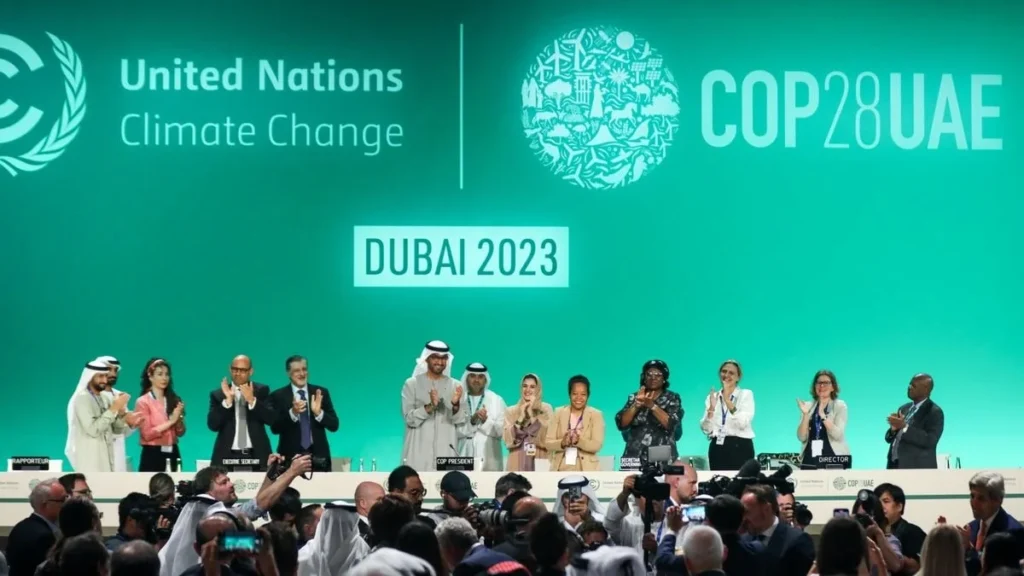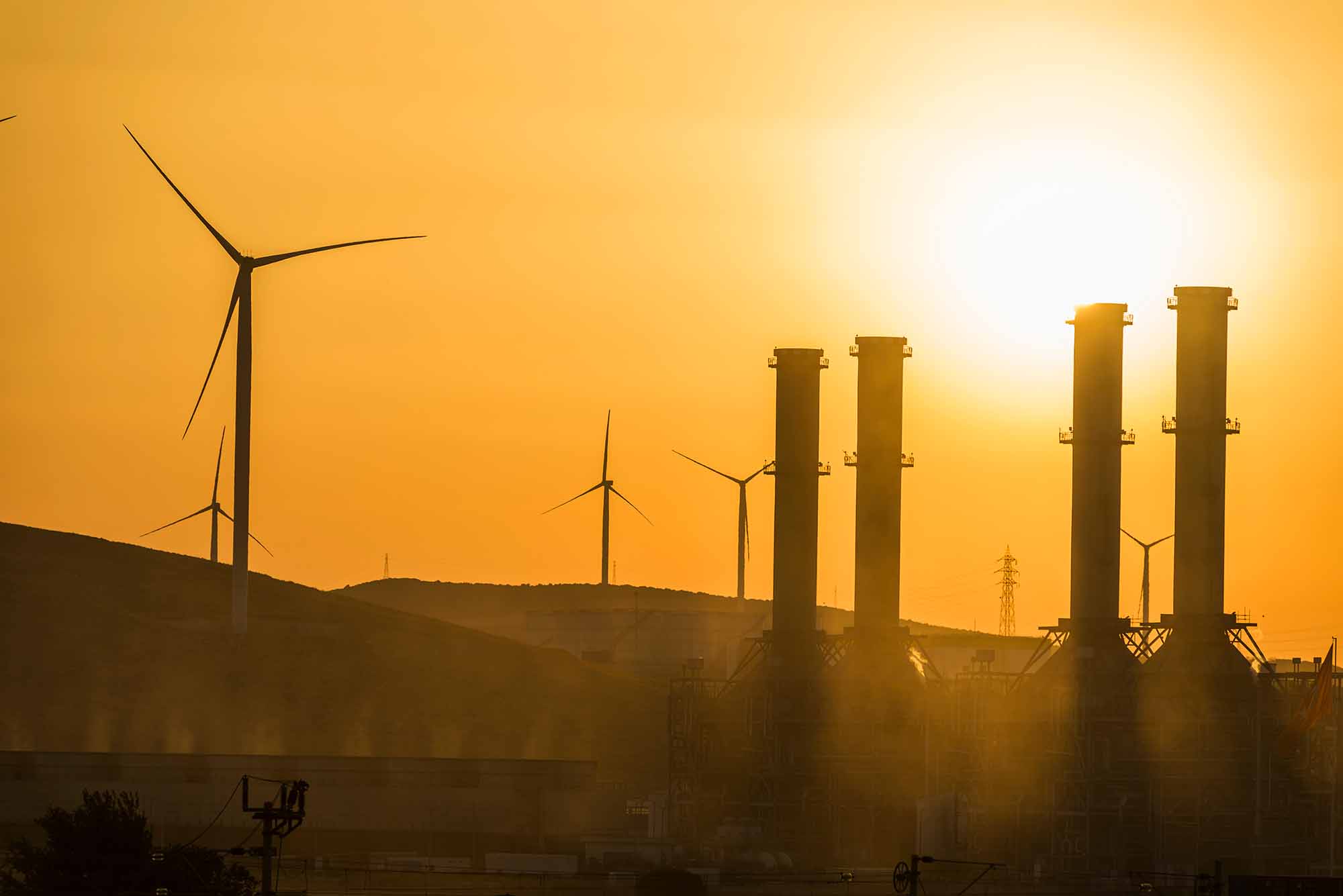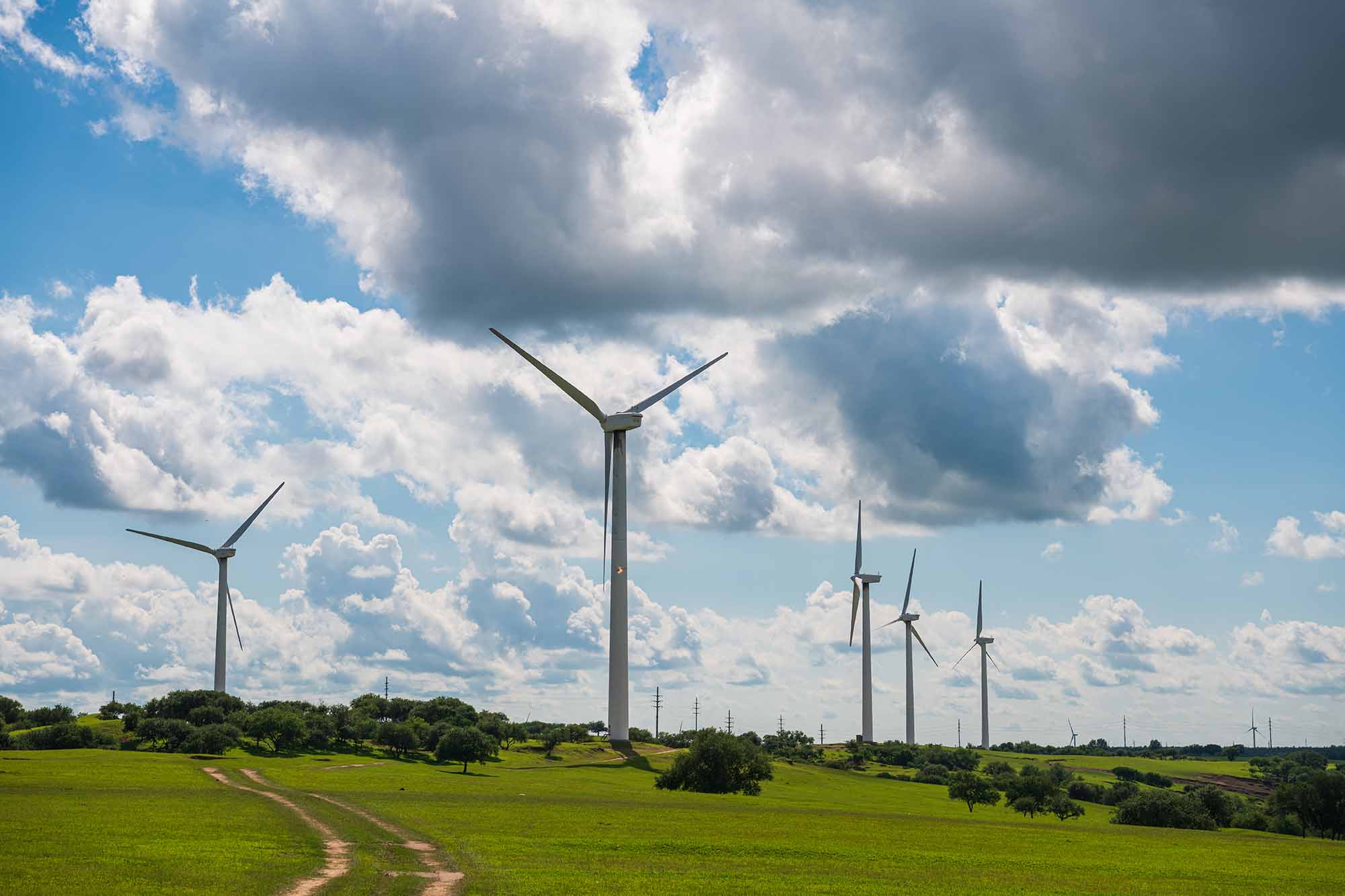WWW.UTILITYDIVE.COM
Though the final agreement is a step forward from a previous draft that scrapped the demand to “phase out” fossil fuels, its text contains ambiguous language on shifting away from oil and gas.
Dive Brief:
- Representatives from nearly 200 countries struck a landmark climate agreement Wednesday, calling for a transition away from fossil fuels and the acceleration of renewable energy production. The deal marked the conclusion of the COP28 summit, following two weeks of contentious negotiations and several draft proposals.
- The final COP28 agreement was announced a day after the summit was originally scheduled to end due to a prolonged debate on including stronger language on fossil fuels. It passed with no objection or further discussion when presented to delegates – a feat the summit’s president Sultan Al Jaber called a “historic achievement.”
- The document also calls for countries to adopt other decarbonization strategies to better mitigate climate risk. The agreement includes recommendations of phasing down unabated coal power; phasing out inefficient fossil fuel subsidies; ramping up production of zero- and low-emission technologies like carbon capture and storage; and switching over to zero- and low-carbon fuels.
Dive Insight:
The United Nations Framework Convention on Climate Change said the final agreement demonstrated global solidarity and signaled the “beginning of the end of the fossil fuel era.” The organization said the final framework lays the groundwork for a “swift, just and equitable transition” by proposing significant emissions cuts and scaled-up financing.
Simon Stiell, UN climate change executive secretary, said the true success of the agreement would be determined by how well countries adopt and implement the guidelines mentioned in the text.
“Now all governments and businesses need to turn these pledges into real-economy outcomes, without delay,” he said.
The final agreement is an upgrade for climate activists from a previous version of the draft text released Monday, which eliminated language demanding a “phase out” of fossil fuels, smothering efforts to reach a global consensus on reducing and ultimately halting the production and use of coal, oil and natural gas. The omission sparked widespread criticism from climate advocates in the United States, the European Union and elsewhere, who blamed petrostates for extinguishing efforts to adeptly address the threats posed by global warming.
The fourth iteration of the draft text omitted the phase out of fossil fuels and was released shortly after the Organization of the Petroleum Exporting Countries asked member states to steer clear of any COP28 proposal that would hinder the continued production and use of fossil fuels, urging them to “proactively reject any text or formula that targets energy i.e. fossil fuels rather than emissions.”
The text in the COP28 deal now calls for “transitioning away from fossil fuels in energy systems, in a just, orderly and equitable manner … so as to achieve net zero by 2050 in keeping with the science.”
However, the agreement also contains slightly contradictory language that justifies the continued use of fossil fuels, listed shortly after the call to move away from them. The deal states it “recognizes that transitional fuels can play a role in facilitating the energy transition while ensuring energy security.”
Environmental advocates criticized the ambiguous terminology, calling it disappointing and misleading. Climate activist and former U.S. Vice President Al Gore said “the influence of petrostates is still evident in the half measures and loopholes included in the final agreement,” in a post on X, formerly known as Twitter.
Others followed suit: James Dyke, a professor at the University of Exeter, said the final deal came with “numerous caveats and loopholes that risks rendering it meaningless when it comes to our efforts to limit warming to well below 2°C.”
The United Nations’ climate body also confirmed the next climate summit, COP29, would take place in Azerbaijan in November 2024, with COP30 scheduled to take place in Brazil in November 2025.












